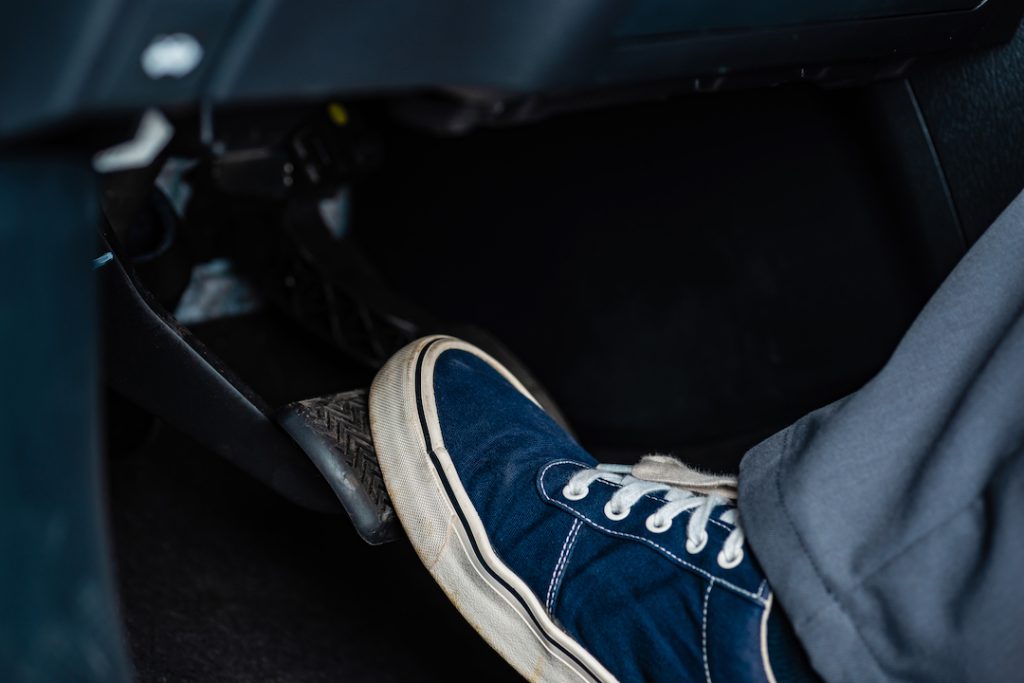Mechanics Auckland – Brake pads, brake servicing
Should you change all brake pads at once?
With most vehicle parts and components, at Roskill Auto Mechanical, we like to look at repair options before automatically assuming that replacement parts are necessary. But some things do need to be replaced from time to time to keep your vehicle safe to drive. Brake pads are a good example.
To understand why brake pads need to be replaced – and how often – let’s take a quick look at the function of your vehicle’s brakes.
How do brakes work?
Your car has four wheels, so it has four sets of brake pads. When you put your foot on the brake pedal to slow down or stop, a lever connected to the pedal pushes a piston into the master cylinder filled with hydraulic fluid. This sets the hydraulic system into action, which causes the brake callipers to press against the brake disc or rotor. Sitting between the calliper and the rotor is the brake pad.
The brake pad is the part that absorbs all the friction, rubbing and heat when your brakes are applied. To withstand this heat and friction, brake pads are made of durable materials, such as composites, alloys and ceramics. But even these wear out over time. How much time and how long they last depend on how much you drive and how fast or aggressively you drive.
Do all brake pads need to be replaced at the same time?
This is a question that only your mechanic can answer after checking your vehicle. Brake pads need to be replaced when they’re too worn to help you brake safely or if they are faulty or damaged. These things can only be determined through a proper brake check.
In many instances, however, brake pads are commonly replaced in pairs. The front brake pads help stop the two front tires, and the rear brake pads help stop the two rear tires. The front brake pads will tend to wear out at the same rate as each other, and the rear brake pads will tend to wear out at the same rate as each other. Furthermore, the front brake pads will probably wear out faster than the rear ones.
The front brake pads usually wear out faster and need replacing more frequently due to the weight transfer of your vehicle when braking. When you hit the brakes, the car lurches forward (more so when you drive at higher speeds).
The fact that there is more downward pressure on the front of the vehicle means that the front tires experience more friction than the rear tires. The friction between the calliper and rotor is greater in the front, so your brake pads tend to wear out faster in the front.
For this reason, we recommend replacing the two sets of front brake pads (left and right) at the same time. You may not need to do the rear ones when you’re replacing the front pads, but you should replace the rear pads (left and right) simultaneously.
To recap … replace both sets of front pads at the same time. Replace both sets of back pads at the same time. But it’s not always necessary to do front and back simultaneously. Get in touch with us at Roskill Auto Mechanical, and we can schedule a brake check for you.
When should you replace your brake pads?
- If your car fails its Warrant of Fitness (WOF) inspection
Worn, faulty or inadequate brake pads are issues that can result in a failed WOF.
- If the brake light comes on
There are a few things that can cause the brake light within your dashboard to come on. Drive straight to your mechanic and have your brakes checked.
- If your car isn’t braking or responding properly
If you suspect something is wrong, get it checked out immediately. This could be a car that is swerving when braking or one that is slow to respond when pressing the brake pedal.
- If you hear odd sounds when you hit the brakes
Don’t ignore those sounds – they’re a sure sign that something needs to be investigated.
A brake check and brake pad replacement can make a stark difference in how your car performs. if you suspect your vehicle isn’t stopping safely, don’t ignore it or procrastinate. Leaving a brake check to a “convenient” time may result in a serious accident.
Contact us online or call us on 09 242 1870 to book an appointment.

